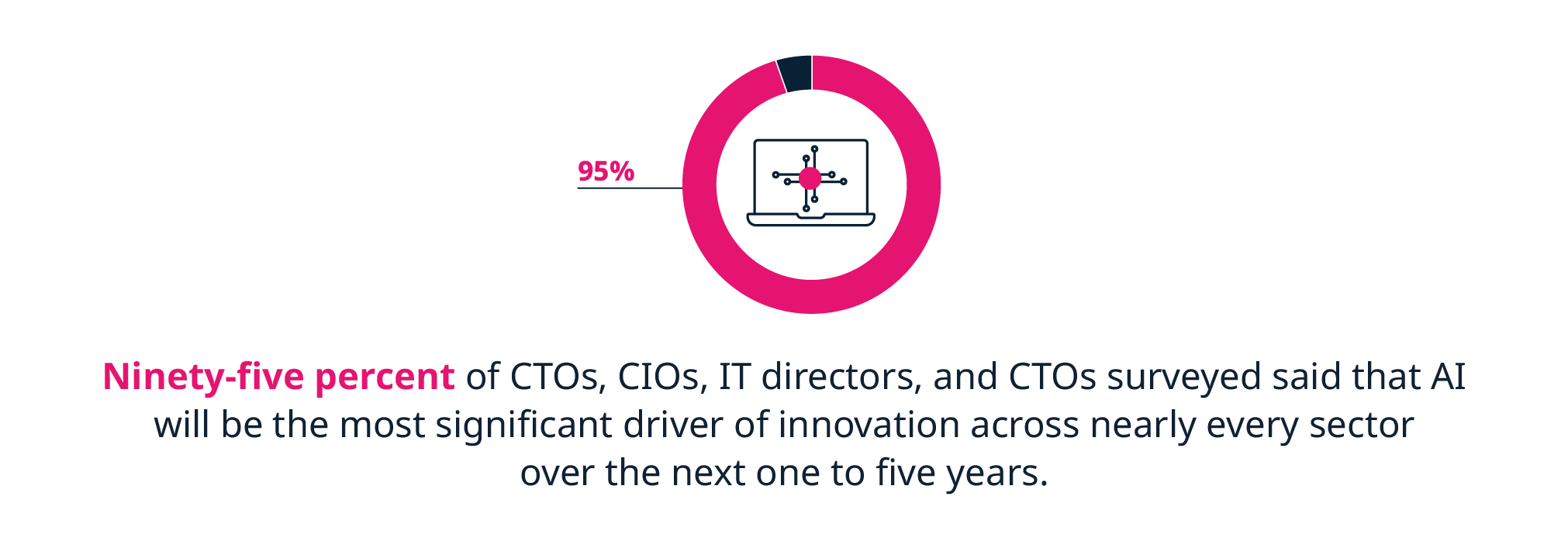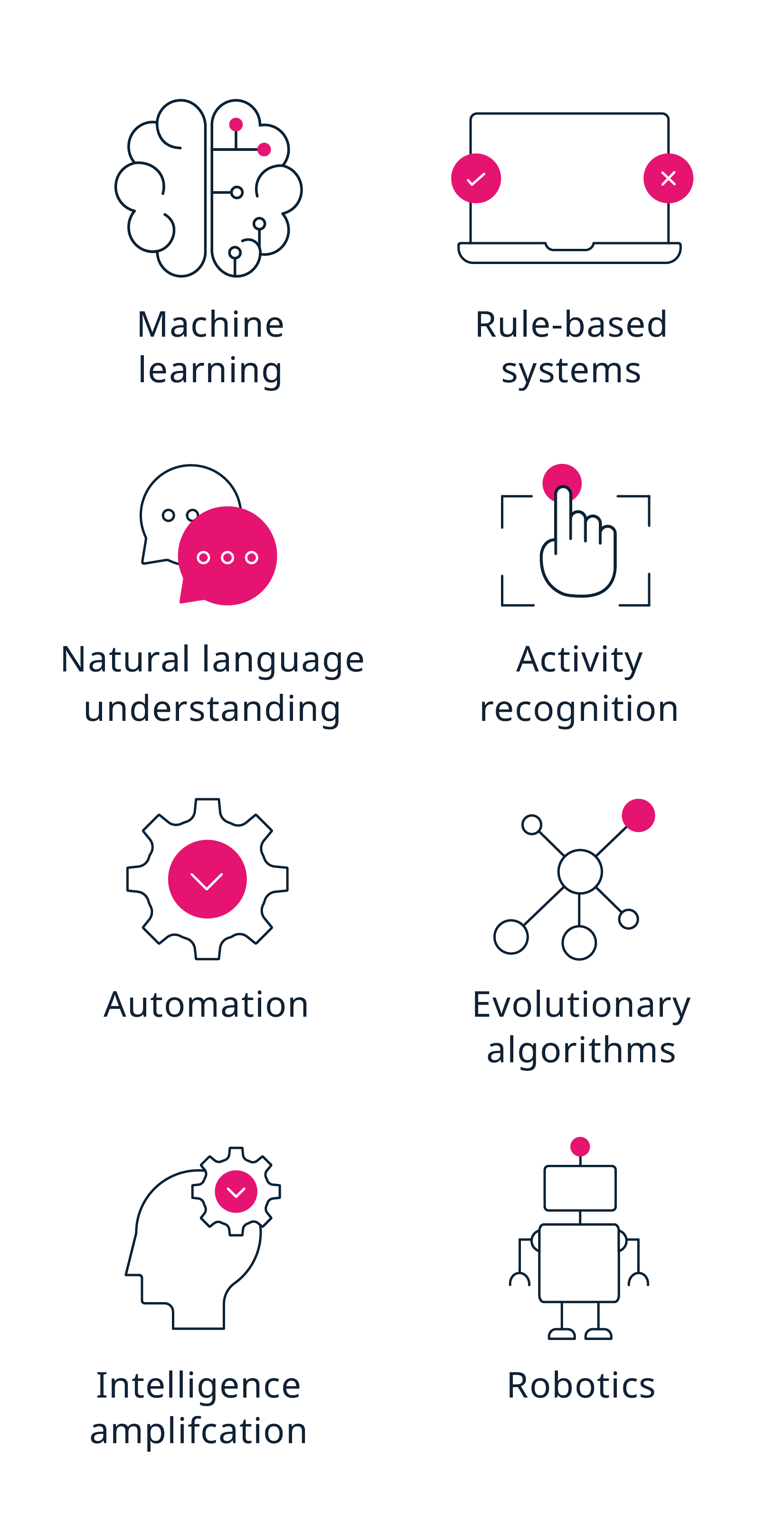The Implications of AI for Your Business
The use of artificial intelligence (AI) has jumped and accelerated in recent years. According to a Harvard Business Review article, 52 percent of companies accelerated their plans for adopting AI, with 86 percent of them making the use of AI the norm in their businesses.1 According to another survey, 95 percent of CTOs, CIOs, IT directors, and CTOs surveyed said that AI will be the most significant driver of innovation across nearly every sector over the next one to five years.2 But, interestingly, not many leaders realize AI’s impact goes further than the IT department, whether that’s in marketing, customer service, or human resources.

AI technologies have emerged as transformative tools affecting all industries, business functions, and the interaction between people and computers. It’s now essential for business leaders to become familiar with existing and emerging technologies to prepare for the inevitable implications for management.
The Oxford Artificial Intelligence Programme from Saïd Business School at the University of Oxford is designed for managers and leaders who need to better understand the applications and possibilities of AI. At the end of the six-week program, you’ll have a practical business case for implementing the technology into your organization.
Is artificial intelligence killing jobs?
Although the media often gives the impression that AI will lead to robots replacing human workers, the changes may be more subtle than that. It’s more likely career paths, industries, and simple day-to-day manual tasks of your job will evolve. In fact, by 2025, 50 percent of all employees will need to learn new skills.3

In order to fully understand how AI will impact the future of work, you need to explore the core features of AI technologies from a business perspective. Here are three key areas to explore:
1. Artificial intelligence’s impact on business
Different kinds of AI impact different business types and departments. These are some of the AI technologies and applications that businesses can use to their advantage:
- Machine learning
- Rule-based systems
- Natural language understanding
- Activity recognition
- Automation
- Evolutionary algorithms
- Intelligence amplification
- Robotics

2. The impact of AI on the workforce and society
AI is feared by many due to a lack of understanding. However, that fear may not be as valid as previously thought. The World Economic Forum recently determined that more jobs will increase in demand than those that will decrease because of AI. By 2025, it estimates 97 new jobs will exist.
The World Economic Forum recently determined that more jobs will increase in demand than those that will decrease because of AI.
MIT faculty and industry experts from the Artificial Intelligence: Implications for Business Strategy online short course provide an in-depth understanding of how AI and machine learning can be embedded into your business strategy.
Watch the video below to see what Thomas Malone, Co-Faculty Director of the program, says about AI’s impact on jobs:
3. The ethical implications of AI
As technology continues to progress, so do the ethical issues and implications of using machines in partnership with humans.
Businesses will need to consider algorithmic biases and inequality and the challenges AI poses within society and the state. This subject is explored in the three-week Ethics of AI online course from the London School of Economics and Political Science (LSE).
Some other AI ethics topics include:4
- Autonomous vehicles
- Crowdsourced workers
- Surveillance and privacy
AI is coming, and it’s quickly altering the business landscape. Being at the forefront of adopting AI in your business will place you ahead of the competition and make your team more effective. With short online courses such as those highlighted here, employees can learn to utilize AI, ultimately benefitting your organization.
Are you ready to explore how AI can be leveraged in your organization?
Explore the portfolio of online courses
- 1 McKendrick, J. (Sep, 2021). ‘AI adoption skyrocketed over the last 18 months’. Retrieved from Harvard Business Review.
- 2 (Nd). ‘Artificial intelligence and machine learning, cloud computing, and 5G will be the most important technologies in 2022, says new IEEE study’. Retrieved from IEEE. Accessed on February 3, 2022.
- 3 Whiting, K. (Oct, 2020). ‘These are the top 10 job skills of tomorrow – and how long it takes to learn them’. Retrieved from World Economic Forum.
- 4 Pazzanese, C. (Oct, 2020). ‘Ethical concerns mount as AI takes bigger decision-making role in more industries’. Retrieved from The Harvard Gazette.